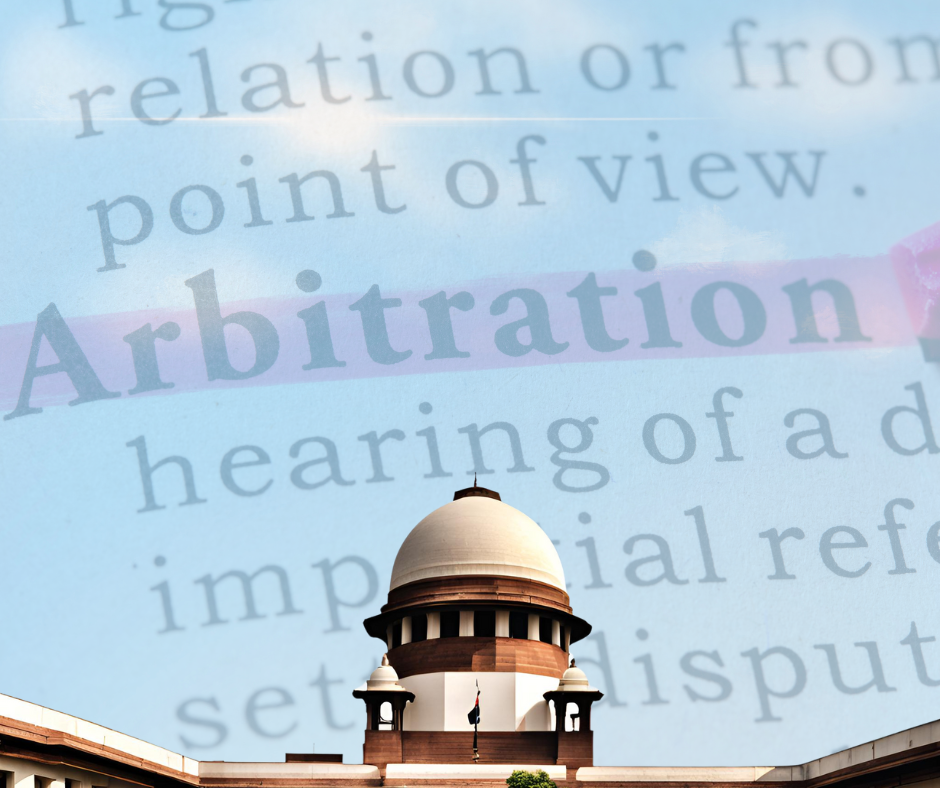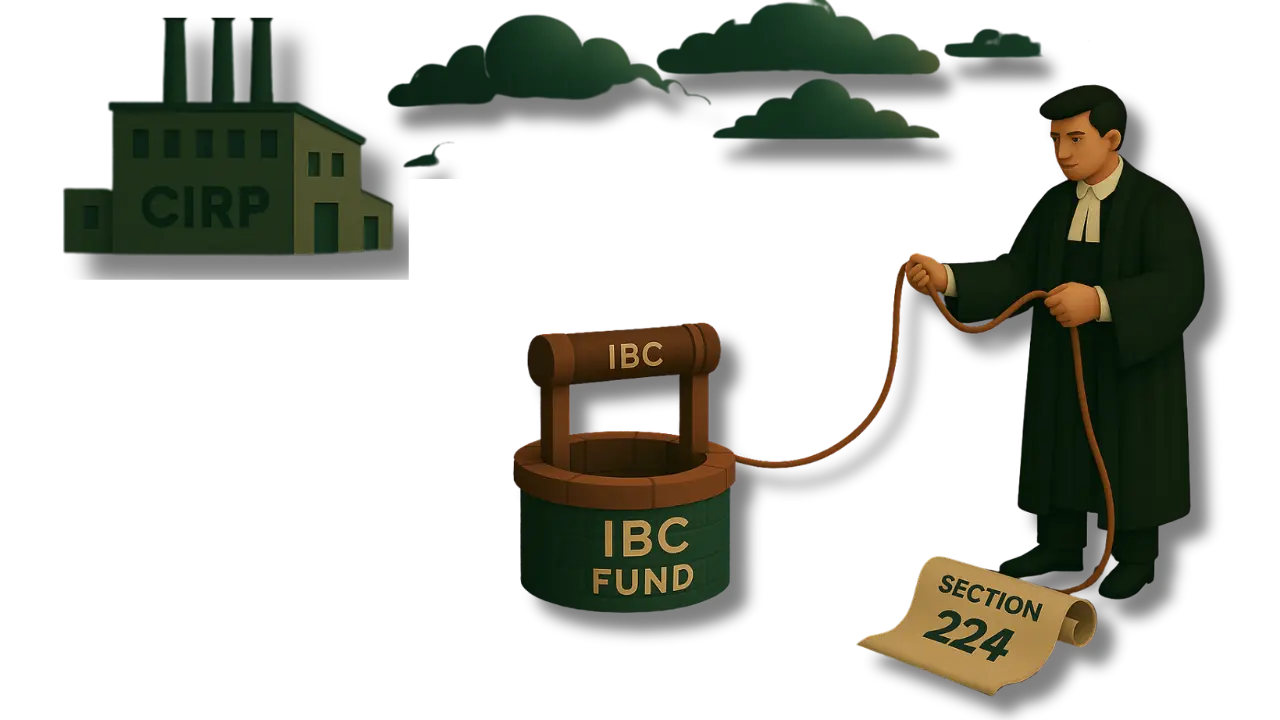The Supreme Court of India, in a landmark ruling on November 8, 2024, invalidated clauses allowing unilateral appointment of arbitrators by PSUs in public-private contracts, citing Article 14 of constitution of India violations.
Introduction
On November 8, 2024, a Constitution Bench of the Supreme Court of India delivered a landmark judgment in the case of Central Organisation for Railway Electrification v. ECI-SPIC-SMO-MCML (Civil Appeal Nos. 9486-9487 of 2019). The Chief Justice of India Dr. D.Y. Chandrachud authored the majority opinion for Justices JB Pardiwala and Manoj Mishra, with Justice Hrishikesh Roy and Justice P.S. Narasimha concurring in part. The Court ruled that unilateral appointment of Arbitrators in public-private contracts violates Article 14 of the Constitution, as it hinders the equal treatment of parties in arbitration proceedings. Justice Narasimha offered a nuanced concurring opinion, diverging on the interpretation of constitutional law’s application to arbitration.
Background
This case arises from a dispute over Arbitrator appointments under contracts governed by the General Conditions of Contract (GCC) between the Central Organisation for Railway Electrification (CORE) and ECI-SPIC-SMO-MCML, a joint venture. The GCC permitted the General Manager of CORE to unilaterally appoint Arbitrators. ECI-SPIC contested this, leading to a complex legal journey that passed through the High Court before reaching the Supreme Court. The dispute brought into focus conflicting precedents on whether one party in a dispute could unilaterally appoint Arbitrators.
Earlier cases such as TRF Ltd. v. Energo Engg. Projects Ltd. (2017) and Perkins Eastman Architects DPC v. HSCC (India) Ltd. (2020) ruled that once an Arbitrator becomes ineligible, they cannot nominate another Arbitrator. However, contrary views in Union of India v. Tantia Constructions Ltd. and JSW Steel Ltd. v. South Western Railway indicated the need for a larger Bench to examine this issue.
Facts of the Case
The dispute revolved around a public-private contract where the CORE had entered into a project agreement with ECI-SPIC. The contract contained a clause allowing the General Manager of CORE to unilaterally appoint Arbitrators. After disputes arose, ECI-SPIC challenged this unilateral appointment process in court. The Allahabad High Court had earlier intervened, appointing a retired judge as the sole Arbitrator, which was subsequently contested by CORE in the Supreme Court.
The Question of Law
Validity of Unilateral Appointment Processes: The Court examined whether a party with a vested interest in a dispute could unilaterally appoint a sole Arbitrator or create a panel from which the other party is mandated to select their Arbitrator.
Equal Treatment of Parties in Arbitrator Appointment: The Court analyzed whether the principle of equal treatment of parties, enshrined in the Arbitration and Conciliation Act, 1996, applies at the stage of Arbitrator appointment.
Constitutionality of Government Entities Appointing Arbitrators: The Court considered whether a unilateral appointment process by a government entity, where it appoints a sole Arbitrator or the majority of the arbitral tribunal, violates Article 14 of the Constitution.
Judgment by the Court
Majority Opinion by Chief Justice Dr. D.Y. Chandrachud (for Justices JB Pardiwala and Manoj Mishra)
Chief Justice Dr. D.Y. Chandrachud, authoring the majority opinion, held that the principle of equality of parties is fundamental at all stages of arbitration, including the appointment of Arbitrators. The Court recognized that while public sector undertakings (PSUs) may empanel potential Arbitrators, it is impermissible for one party to compel the other to select an Arbitrator solely from this curated panel. Such unilateral appointment clauses, particularly in public-private contracts, undermine the integrity of arbitral tribunals, which are expected to resolve disputes impartially.
The judgment emphasized that the unilateral appointment of an Arbitrator contradicts the basic principle of arbitration—impartial dispute resolution. It violates the “nemo judex in causa sua” rule, which forms part of Indian public policy in the arbitration context. The Court reasoned that allowing one party the power to unilaterally appoint a sole Arbitrator raises legitimate concerns regarding the Arbitrator’s independence and impartiality. It also curtails the equal participation of the other party in the selection process.
The Court further addressed three-member arbitral tribunals, noting that mandating the other party to choose from a PSU-curated panel disrupts the balance of equal treatment. There is no meaningful counterweight when one party has exclusive control over the selection process, resulting in a biased appointment procedure. The majority opinion declared such unilateral appointment clauses in public-private contracts as violative of Article 14 of the Indian Constitution. Importantly, this ruling was clarified to apply prospectively, affecting Arbitrator appointments made after the date of the judgment, including those involving three-member arbitral panels.
Justice Hrishikesh Roy’s Opinion
Justice Hrishikesh Roy agreed with the majority on the applicability of the equal treatment principle under Section 18 of the Arbitration Act to all stages, including the Arbitrator’s appointment. However, he differed from the majority by opposing the use of constitutional law principles to bolster the equality doctrine in arbitration. Justice Roy emphasized that principles of constitutional and administrative law should not be imported into arbitration law. He agreed with Justice Narasimha that the Arbitration Act itself contains adequate safeguards to ensure fairness.
While Justice Roy supported party autonomy, he cautioned against declaring all unilateral appointments void. He highlighted Section 12(5) of the Arbitration Act, which allows a waiver if express consent is given after a dispute arises. He stressed that the Court’s intervention should be limited to cases where party consensus breaks down, with the Arbitration Act providing remedies under Sections 12 to 15.
Justice P.S. Narasimha’s Opinion
Justice P.S. Narasimha offered a nuanced perspective on party autonomy and independence in arbitration. He explained that arbitration is built on two pillars: party autonomy and the statutory obligation to create an independent tribunal. Party autonomy, extending from the choice of Arbitrators to the procedural conduct and challenges to the award, is a core feature of arbitration, but it is balanced by the requirement for impartiality.
Justice Narasimha rejected the need to import public law principles from constitutional and administrative law into arbitration, noting that the Arbitration Act and Contract Act already enshrine these duties. He argued that even when parties choose arbitration, they cannot waive the requirement for an independent tribunal, as it forms part of India’s public policy. He stressed that courts have a duty to ensure arbitration agreements meet the public policy standards of independence and impartiality.
Implications of the Judgment
The ruling has far-reaching implications for the future of arbitration in India, especially concerning contracts involving public sector undertakings (PSUs) and private parties. The decision underscores the constitutional requirement for equality and impartiality in Arbitrator appointments, affecting how PSUs and other government bodies draft arbitration clauses in future contracts.
For PSUs, this judgment mandates a rethink of standard contract clauses, particularly those that unilaterally empower them to appoint Arbitrators. For private entities, the ruling offers a safeguard against potential bias in arbitrations with government entities, ensuring a level playing field. The Court clarified that the ruling would apply prospectively, affecting only future arbitrations.
Conclusion
The Supreme Court’s judgment resolves a critical issue of fairness in arbitration, particularly in the context of public-private contracts. By declaring unilateral Arbitrator appointment clauses unconstitutional, the Court has bolstered the integrity of arbitration in India. However, this judgment may lead to increased litigation as parties may challenge existing arbitration clauses. Additionally, balancing party autonomy with judicial intervention in arbitration remains a delicate challenge, as seen in Justice Narasimha’s caution against excessive reliance on constitutional principles. Moving forward, this decision is likely to encourage reforms in arbitration law to further clarify the extent of judicial involvement in upholding the fairness of arbitration agreements.
CONTRIBUTORS
Vaishali Shukla (Associate)






